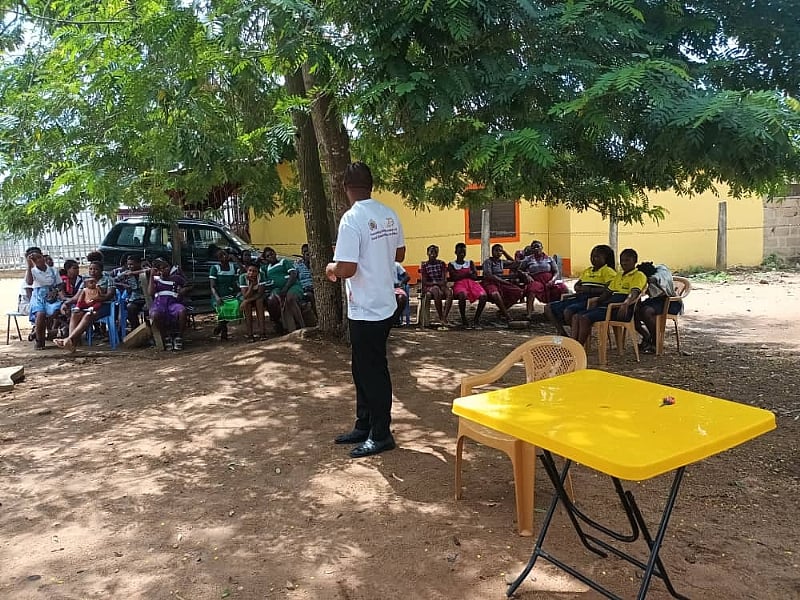The National Commission for Civic Education (NCCE) in Ghana orchestrated a pivotal community engagement session with the Cooperative Fashion Designers Association in Sogakope, South Tongu, as a key component of its annual Constitution Week celebrations. The event, held at the PPAG office on May 15th, underscored the theme of “Ghana’s Future: Our Collective Responsibility”, emphasizing the indispensable role of every citizen in shaping the nation’s trajectory and contributing to its overall progress. This engagement served as a platform to foster awareness about civic responsibilities and their direct impact on national development, focusing on the potential of the fashion design industry to contribute significantly to Ghana’s economic growth.
Mr. Seth Fiagorme, the Director of NCCE in South Tongu, delivered a compelling keynote address, urging the fashion designers to recognize their potential as agents of change and to actively participate in both community and national development initiatives. He stressed the importance of strengthening their association, advocating for their collective interests, and formalizing their operations through registration with the District Assembly. This formalization, he explained, would allow the government to provide more targeted and effective support to the association, facilitating their growth and contribution to the national economy. He highlighted the collaborative nature of development, emphasizing that a strong partnership between the government and organized industry sectors is crucial for achieving sustainable and inclusive growth.
Furthermore, Mr. Fiagorme emphasized the critical role of tax compliance as a fundamental civic responsibility. He elucidated the direct link between consistent tax payments and the government’s ability to deliver essential public services, including infrastructure development, education, healthcare, and security. By fulfilling their tax obligations, the fashion designers would not only be contributing financially to national development but also empowering the government to create a more conducive environment for businesses to thrive. He underscored that responsible citizenship involves contributing one’s fair share to the collective good, thereby enabling the government to fulfill its mandate effectively.
Beyond financial contributions, Mr. Fiagorme also highlighted the significance of ethical business practices. He encouraged members of the Cooperative Fashion Designers Association to embrace values such as hard work, honesty, integrity, truthfulness, and humility in their daily operations. These values, he argued, are not merely moral imperatives but also essential business principles that foster trust and credibility among customers and stakeholders. By adhering to these values, the fashion designers would enhance public confidence in their businesses, attract more customers, increase profitability, and ultimately contribute more significantly to the national economy. Ethical business practices, he emphasized, are a cornerstone of sustainable and impactful economic development.
The engagement session fostered a dynamic exchange of ideas and perspectives, creating a space for open dialogue between the NCCE and the fashion designers. The designers expressed their commitment to actively participate in civic education initiatives and promote responsible citizenship within their industry. They recognized the importance of being not just skilled artisans but also informed and responsible citizens who contribute to the betterment of their community and the nation. This commitment underscores the potential of industry associations to serve as platforms for promoting civic awareness and driving positive change within their respective sectors.
The NCCE’s Constitution Week activities extend throughout Ghana, reinforcing democratic values and encouraging active citizen engagement in governance. These activities represent a continuous effort to strengthen the foundations of democracy and promote a culture of active citizenry. By fostering a sense of collective responsibility and empowering citizens to participate meaningfully in shaping their nation’s future, the NCCE plays a crucial role in consolidating Ghana’s democratic progress and driving sustainable development. The engagement with the Cooperative Fashion Designers Association in Sogakope serves as a microcosm of this broader national effort, highlighting the potential of targeted community engagements to promote civic awareness and inspire collective action towards national development.














